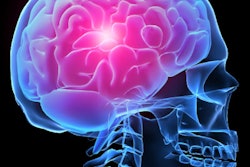Why do we procrastinate? MRI results suggest that blame could fall on an enlarged amygdala and a poor connection with the dorsal anterior cingulate cortex, according to a study published online August 17 in Psychological Science.
Researchers at Ruhr-Universität Bochum in Germany scanned 264 women and men to measure the volume of individual brain regions and their functional connectivity. Subjects were also asked to complete a survey to assess their ability to take the initiative to perform tasks.
First author Caroline Schlüter and colleagues observed a correlation between poor action control and a larger amygdala. In addition, those with poor action control had less of a functional connection between the amygdala and the dorsal anterior cingulate cortex.
The amygdala is known to help people assess different situations in terms of outcome and warn about potential negative consequences of particular actions. The dorsal anterior cingulate cortex uses the information to then choose the action.
Schlüter and colleagues noted that future studies should be designed to show how the degree of action control might be modified through specific training or brain stimulation.



















